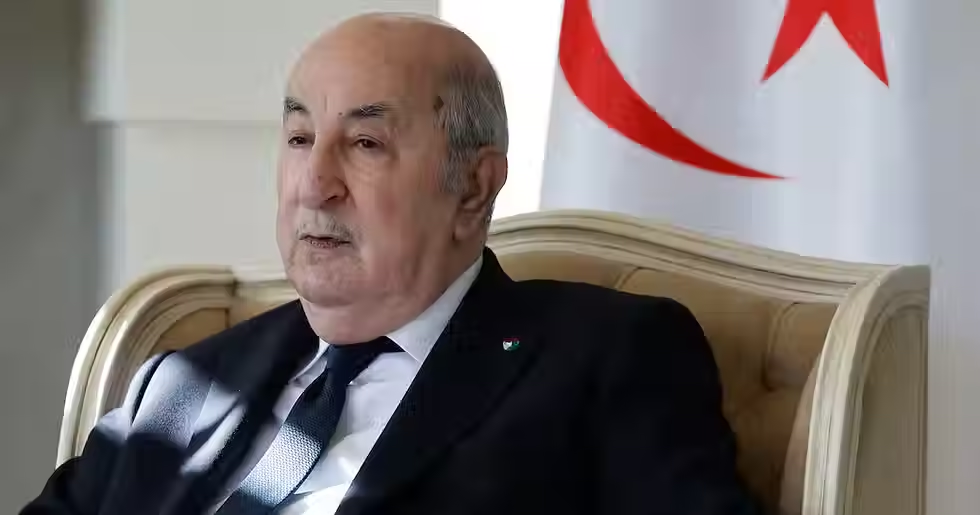
In the midst of a diplomatic crisis with France, Algerian President Abdelmadjid Tebboune gave an exclusive interview to the French newspaper L'Opinion, published on Sunday, February 2. The interview delves into key international matters, including Palestine, Ukraine, Syria, the Western Sahara, relations with China, and Donald Trump’s potential return to power in the United States.
Palestinian State Key to Normalization with Israel
When asked if Algeria would normalize relations with Israel following the creation of a Palestinian state, Tebboune responded: "Of course, the very day there is a Palestinian state." He emphasized that this stance is consistent with Algeria's history, noting that past presidents Chadli Bendjedid and Abdelaziz Bouteflika held similar views.
Relations with the United States: Steady Despite Challenges
Tebboune recalled Algeria’s good relations with the United States, even during Donald Trump’s first term. He highlighted how, after his election in 2019, Trump congratulated him within hours, whereas French President Emmanuel Macron took four days to acknowledge the results.
Tebboune also pointed to the U.S.'s historical ties with Algeria, including their introduction of the Algerian question at the UN and the significant investments made in hydrocarbons and infrastructure by American firms.
China's Role and Non-Alignment Policy
Discussing Algeria's relations with China, Tebboune highlighted their strong historical ties, dating back to Algeria's support for China’s UN membership. Economically, he praised Chinese companies’ performance, noting their successful bids in major Algerian projects, including housing construction and the Grand Mosque in Algiers.
Tebboune reaffirmed Algeria’s commitment to non-alignment and non-interference, stressing the country’s rejection of foreign control and attempts to "vassalize" its policies.
Diplomatic Mediation Efforts in Syria and Ukraine
Tebboune revealed Algeria's attempts to mediate conflicts in both Syria and Ukraine. He explained that Algeria had tried to engage with Syrian President Bashar al-Assad to encourage dialogue with the opposition, though the efforts were unsuccessful.
In the Ukraine conflict, Tebboune noted that French President Emmanuel Macron had requested his help during a 2023 visit to Russia. While Russian President Vladimir Putin showed a willingness to engage in talks, Ukrainian President Volodymyr Zelenskyy did not respond.
Tensions with Morocco and Western Sahara
Addressing the ongoing tensions with Morocco, Tebboune compared the situation to a “game of chess” due to continuous hostile actions from Morocco. He denounced military exercises conducted between Moroccan and Israeli forces near the Algerian border, describing them as contrary to good neighborly relations. However, he expressed goodwill toward the Moroccan people, saying Algeria wishes them only the best.
On the Western Sahara issue, Tebboune reiterated Algeria’s support for the Sahrawi people's right to self-determination, noting that the Sahrawi Arab Democratic Republic (SADR) is recognized by the African Union.
Sahel Security and Wagner Concerns
Tebboune also discussed security in the Sahel region, expressing concern over the presence of Russian Wagner paramilitary forces near Algeria’s borders. He clarified that Algeria has conveyed its concerns to Russian authorities.
Regarding Mali, Tebboune denied accusations of Algeria supporting terrorism and said the country had offered to fund a development plan for northern Mali worth several hundred million dollars.
Algerian President Tebboune's remarks underscore Algeria's strategic foreign policy goals, including its commitment to non-alignment, diplomatic mediation, and support for Palestinian statehood, while maintaining balanced relations with major global powers.
Comments